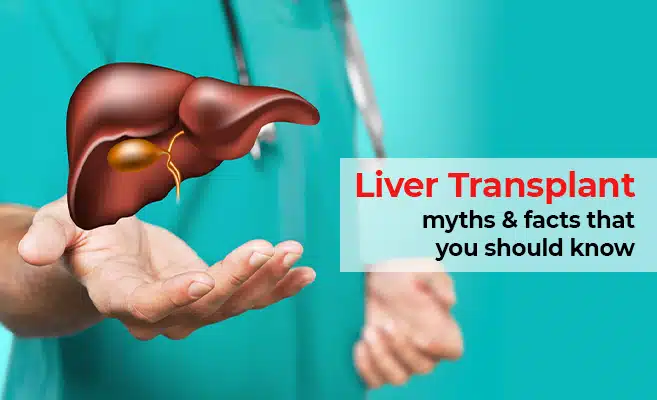Liver Transplant Myths & Facts That You Should Know

The liver is one of the most vital organs in the human body as it helps in the production of bile for fat digestion. Whereas, it also acts as a storage house for glycogen, and even aids in the deamination of amino acids. However, it is also one of the most vulnerable organs and can suffer from various diseases. From fatty liver to hepatic cancer, the list is endless. Doctors often suggest medicines and regular surgeries to treat the conditions. However, certain cases require liver transplant treatment to extend the patient’s lifetime.
While organ transplantation is standard in today’s medical world, many people have prejudices about this process. We have debunked some myths in this section below while discussing the facts and truth about the entire treatment process.
What are The Myths About a Liver Transplant?
Debunking the myths about liver transplant treatment is crucial so that people can be completely aware of what transpires during the surgery. It will also give you much-needed clarity about the process and its effectiveness. Here are some myths and misplaced beliefs about a liver transplant.
The donated liver quality differs for alive and deceased donors
Many think the quality of the liver to be transplanted matters the most. As a result, they are always inquisitive about its source. If by chance, they know the liver is sourced from a deceased person, they blatantly disagree with the process and wait for another donor to come up.
This is a myth because the liver is a solid organ and its quality doesn’t depend on whether the donor is alive or dead. The risks, functions, structures, anatomy, and hepatology will be the same for both livers, regardless of the source.
Liver transplantation is the ultimate cure
One of the most common liver transplant myths is that the surgery is the ultimate cure for any hepatic problem. Sometimes, this statement is true. For example, if the person is suffering from liver cirrhosis – because the newly transplanted liver will be healthy.
But transplanting won’t be the ultimate cure if we consider hepatic cancer where the source is not the liver. This depends on the doctor and your health conditions.
The chances of liver transplant failure are more
Many people believe that the chances of liver transplant failure are more than the success rate. According to them, the liver being a solid organ, might not be compatible with the recipient’s body and end up putting the patient’s life at risk.
However, that is not true because liver transplantation cases have become successful in recent years, thanks to improved medical science and approaches. Gradually, the number of success cases is increasing compared to the failed ones. But yes, you need to visit a genuine doctor who knows the ins and outs of liver transplant surgery.
Liver transplantation cannot be done at any age
Some people still believe that liver transplantation cannot be done until a person reaches a specific age. However, it is not true because the transplantation process doesn’t depend on age. Instead, it depends on the health condition, and comorbidities.
According to the reports, liver transplantation has become successful in people of most ages, including children and elders. Owing to this, the transplantation procedure has become exceptionally preferred to cure a medical condition in the patient’s liver.
It is only done for cancer
It is a common belief that liver transplant treatment is often done to treat hepatic cancer. Since cancer can spread to other body parts, replacing the organ with a new and healthy one sounds better. However, that is not the truth because a liver transplant can be done to replace a fatty liver, treat liver pyrosis, and so on.
The size of the liver is crucial
Unlike the heart or any other organ that can be transplanted, liver transplantation doesn’t depend on the organ size. Some people have enlarged liver due to stone formation, fat accumulation, and so on. If you compare this size with a healthy liver, the organ won’t be compatible with the concerned person.
This is why doctors check the health conditions of the donor’s liver, the internal anatomy, and so on. However, one thing you should know is the compatibility of the liver. For example, an adult’s liver won’t be compatible with a child’s and vice versa.
Conclusion
We hope we’ve guided you well on liver transplants. If you still have more questions or doubts, you can connect with the medical professionals at PSRI. This way, you won’t have to worry about the success rate of the treatment or its efficiency and post-surgery results.

 Book An Appointment
Book An Appointment Virtual Consultation
Virtual Consultation




